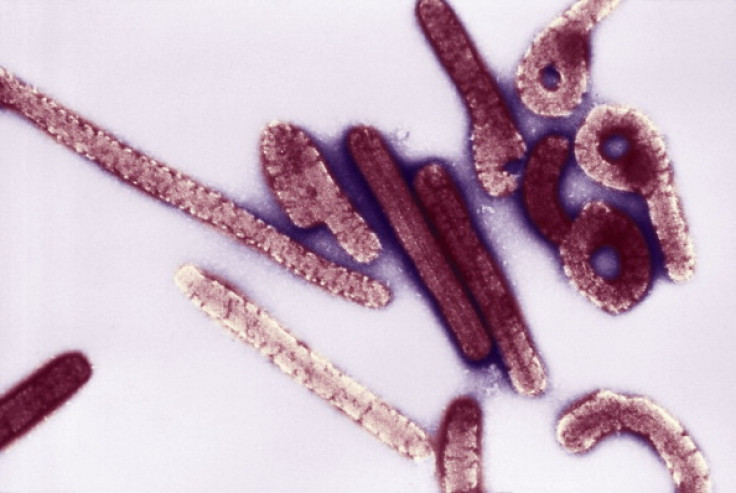Can you catch Ebola from a survivor? Risk 'very low' except through sexual transmission

The risk of Ebola being passed on by survivors of the disease is generally very low, but the risk of transmission through semen remains for at least seven months, scientists have said.
Published in PLOS Neglected Tropical Diseases, a study by researchers from the University of East Anglia shows that the virus generally only remains for 16 days in the blood, the most infectious body fluid.
This news comes in a context of renewed interrogations in the UK over the risks posed by Ebola survivors, after nurse Pauline Cafferkey was hospitalised for a third time following her infection in 2014. She has since then been discharged from London Royal Free Hospital, with her doctors highlighting that she was "not infectious".
Evidence in 6000 scientific articles
The authors reviewed nearly 6000 scientific articles on Ebola, to identify how long the virus stayed in each of the survivors' body fluids, whether blood, semen, sweat, urine, faeces, breast milk or vaginal fluids. The idea was to understand how long a patient could remain contagious. "The recent Ebola outbreak was very different to anything we'd seen before (..) and it left behind thousands of survivors.
"We wanted to know how long the Ebola virus persists in different body fluids after people have recovered, in order to assess how much of a transmission risk those survivors pose to their family, communities and medical professionals", says lead researcher Paul Hunter.
Their analysis suggests that the Ebola virus can be found in most types of body fluids. However, it has not been found in every sample, from every symptomatic patient.
16 days in blood, seven months in semen
The blood carries the highest viral load, but after 16 days the virus could only be found there in 5% of the patients. In the most extreme case, the virus stayed for 29 days in the blood of a survivor. After this time, even he could not pass on the virus, at least via the blood.
Scientists are more cautious when it comes to sexual transmission. It seems the virus can stay active in the semen for a longer amount of time. The most recent data reviewed by the researchers dated from before mid-2015, but it clearly identified a higher risk of infection via the semen. Indeed, 70% of the semen samples from male survivors still tested positive, in the first several months after recovery, meaning they had the potential to infect sexual partners.
Other body fluids do not seem to cause as many problems, since they appear to pose a low infectious risk. The only exception is for breast milk, as the scientists had access to very little data on the topic.
Complications but no contagion
The scientists hope their results will show people that there is no need to fear former Ebola patients. Further research is needed to understand why some survivors, like Pauline Cafferkey, face long-term complications, even when traces of the virus have disappeared from their body fluids.The scientists claim this has no impact on those close to them.
"This study shows that the Ebola virus is usually no longer present in most body fluids after a few weeks (apart from in semen), but other later health complications have been widely reported (..) We did not find any evidence that the virus can reactivate to the point that it becomes infectious for others by non-sexual contact.
"Consequently transmission from social contact with an Ebola survivor is not something that is likely to be a problem, even if that person is suffering from longer term complications", concludes Paul Hunter.
Ebola sexual transmission
Transmission of the Ebola virus from male to female due to exposure to infected semen was reported once, and has been suspected in several other instances, according to the World Health Organization. However, scientists do not yet understand exactly how this transmission occurs.
The virus can be found in the semen of survivors long after it has disappeared from the blood of survivors and long after recover. Because many things still remain to be discovered about the sexual transmission of the virus, survivors are recommended to take strict measures to reduce the risks for their sexual partners.
This includes getting counselling to ensure safer sexual practices, and receiving condoms when discharged from medical care, but also being tested every three months.The survivor should continue to protect himself during sex or abstain from sex until their semen has twice tested negative or for at least 12 months after the disease, if it has not been tested.
© Copyright IBTimes 2024. All rights reserved.






